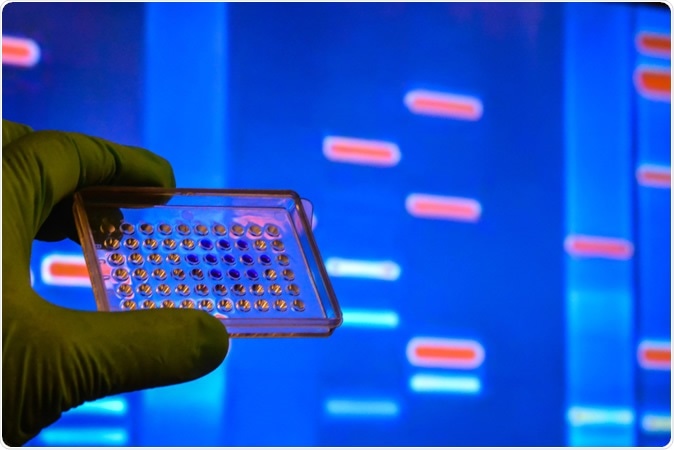It is well-known that when a gene mutates, it triggers tumor formation by stimulating abnormal cell growth and proliferation. Cancer starts from a mutant gene that kickstarts a series of abnormal growth, forming a tumor. However, the exact mechanism of how this happens remains unclear.
Now, thanks to a team of researchers from a staggering 750 affiliations across four continents, the world’s largest genome study has shed light on how genetic changes and mutations stimulate tumor formation.
Published in the journal Nature, the study highlights the genetic causes of cancer, widening the understanding of cancer. Between the researchers, they sequenced whole genomes from more than 2,600 samples, representing 38 different cancer types.

A massive international effort has yielded multifaceted studies of more than 2,600 tumours from 38 tissues, generating a wealth of insights into the genetic basis of cancer. Image Credit: Sergei Drozd / Shutterstock
Genetic changes that can contribute to cancer
The Pan-Cancer Analysis of Whole Genomes (PCAWG) Project brought together more than 1,300 researchers globally to sequence the genomes, which has produced new discoveries.
Previous studies originally studied only the “exome” protein-coding DNA that adds to about 1 percent of the genome of tumors, since it’s easier to do and more affordable. However, the shortcut has left out many changes that may trigger cancer development.
The team found about 705 mutations occurring repeatedly in the cancer genomes, hinting that these are crucial drivers for tumor growth. Of the mutations, about 100 fell outside the protein-coding areas of the genome.
In a nutshell, the team discovered that cancer genomes have an average of about four to five mutations that stimulate the growth of cancer cells. Further, in about 5 percent of the cases, they revealed that there were no such mutations.
There is one driver mutation in about 95 percent of all tumor samples than just 67 percent with exome sequencing, showing that more cancer patients can be matched to medicine or treatment that targets the particular protein made by the driver gene.
Tracing the evolution of mutations was also performed, showing that initial mutations often occur for years, even decades before cancers were detected. If the gene mutations are detected early on, more people will survive and tackle cancer through early treatment.
Early detection and treatment
The new study provides a new way to detect cancer earlier and providing the needed and appropriate treatment for the cancer type. This way, more lives will be saved, and health outcomes will greatly improve.
Also, the study will help doctors understand the causes of cancer, providing a means to impose prevention strategies and help in the development of new methods for cancer diagnosis and treatment.
The project represents an extraordinary international exploration of cancer genomes that will help improve the vital understanding of cancer. Eventually, it will also help scientists understand how cancer forms, and help in the formulation of new treatments and therapies for cancer.
Cancer kills millions worldwide
Cancer is the second-leading cause of death across the globe, killing more than 8 million people each year, next to cardiovascular disease. The prevalence and incidence of cancer are projected to heighten by more than 50 percent over the coming decades.
In the United Kingdom, a person is diagnosed with cancer every two minutes. Each year, there are 363,000 estimated new cancer cases, causing more than 165,000 deaths in the country annually.
In the United States, the four deadliest cancers include lung cancer, colorectal cancer, breast cancer, and prostate cancer. Lung cancer is the leading cause of cancer death in the country, with 228,820 new cases and 135,729 deaths predicted for 2020.
Source:
The ICGC/TCGA Pan-Cancer Analysis of Whole Genomes Consortium. (2020). Pan-cancer analysis of whole genomes. Nature. https://www.nature.com/articles/s41586-020-1969-6